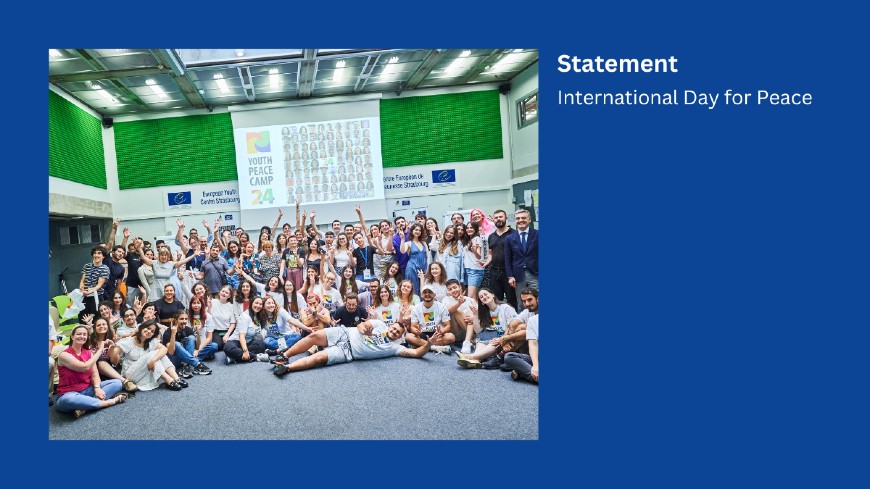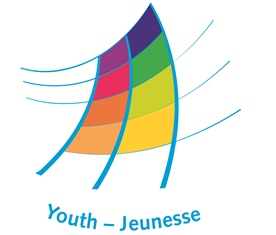Today, we celebrate the International Day of Peace under this year’s theme of “Cultivating a Culture of Peace”, echoing the attitude that peace is not only the absence of conflict but that it also requires a dynamic participatory process “where dialogue is encouraged and conflicts are solved in a spirit of mutual understanding and co-operation”.[1]
At the heart of the Council of Europe's work is the promotion of values substantial for a culture of peace – human rights, democracy, and the rule of law. Central to this mission is the understanding that peace is not merely the absence of direct violence, but rather the presence of physical, social, economic, political, cultural and ecological conditions that support the development of individuals and societies.
In the context of peace, the role of young people cannot be overstated. The adoption of the United Nations Security Council Resolution 2250 (2015) on Youth, Peace and Security paved the way for greater youth participation in decision-making and peace processes at all levels,[2] similar to the Committee of Ministers Recommendation to member states on the role of women and men in conflict prevention and resolution and in peace building.[3] These ideas are not new. The Council of Europe has long championed youth inclusion in decision-making processes, most notably through the co-management mechanism, including the Advisory Council on Youth, which guarantees young people a level platform to engage in dialogue, express their opinions, and influence policies within the Council of Europe and its 46 member states.
That said, the Advisory Council on Youth recognises that young people risk losing confidence in institutions when their capacity to protect and uphold human rights and the rule of law, promote peace, or prevent war is undermined.[4] In addition, with the Russian war of aggression on Ukraine and the ongoing war in the Middle East, the rise of extremist rhetoric, the unprecedented upsurge in antisemitic and anti-Muslim incidents, and the general decrease in respect for human rights in many European countries,[5] the role of the Council of Europe in preventing conflicts, restoring the credibility of international institutions and promoting global peace is more important than ever.[6]
Young people have the right to live in peaceful and inclusive societies; we must not take this for granted. It is our duty to take all necessary steps to achieve, sustain and cultivate peace. For that reason, the Advisory Council on Youth commends the efforts of the Youth Department to ensure the participation of young people in confidence-building measures and dialogue through activities such as the annual Youth Peace Camp, the Euro-Arab Youth Forum, the Supporting Confidence at 18 Seminar, and other activities, as well as the vital youth sector support efforts in war-torn Ukraine. Recognising the transformative potential of the youth sector and the essential role young people play in building long-lasting peace and coexistence, we also call on member states to invest the necessary efforts and resources into implementing a fit-for-purpose Youth Peace and Security Agenda,[7] as well as other youth-relevant instruments of the Council of Europe.
"Since wars begin in the minds of men, it is in the minds of men that the defenses of peace must be constructed",[8] across countries and generations. Together, through the work of the Council of Europe, multilateralism and co-operation, we can cultivate a culture of peace that transcends borders, embraces diversity and paves the way for a future where all people can live with dignity and security.




